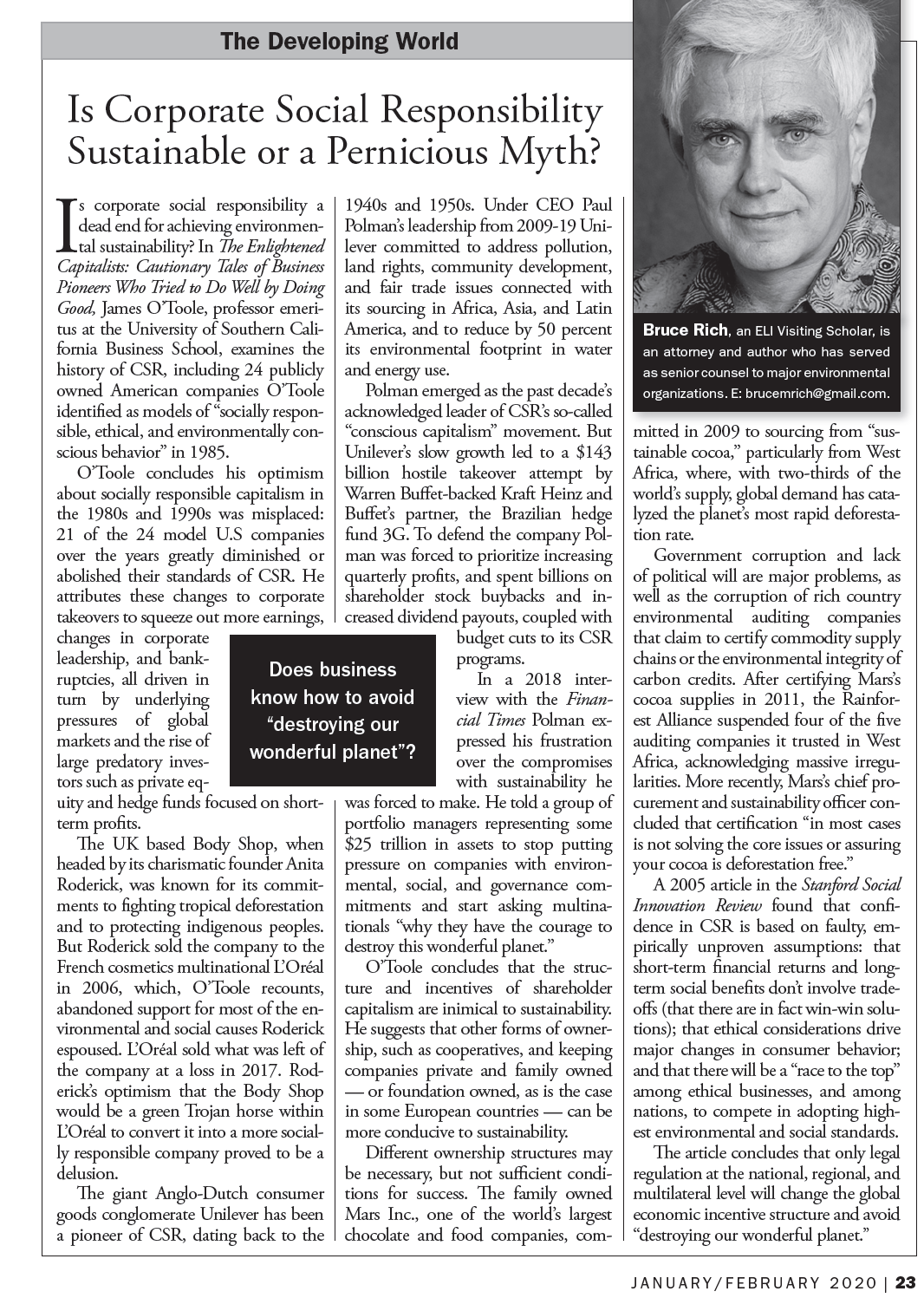- Bruce Rich
- Environmental Forum
- January-February 2020
- p. 23
Is corporate social responsibility a dead end for achieving environmental sustainability? In “The Enlightened Capitalists: Cautionary Tales of Business Pioneers Who Tried to Do Well by Doing Good,” James O’Toole, professor emeritus at the University of Southern California Business School, examines the history of CSR, including 24 publicly owned American companies O’Toole identified as models of “socially responsible, ethical, and environmentally conscious behavior” in 1985. O’Toole concludes his optimism about socially responsible capitalism in the 1980s and 90s was misplaced: 21 of the 24 model U.S companies over the years greatly diminished or abolished their standards of CSR. He attributes these changes to corporate takeovers to squeeze out more profits, changes in corporate leadership, and bankruptcies, all driven in turn by underlying pressures of global markets and the rise of large predatory investors such as private equity and hedge funds focused on short term profits. An older article in the Stanford Social Innovation Review found that CSR is based on faulty empirically unproven assumptions and that only legal regulation at the national and multilateral level will change a globally perverse economic incentive structure.



